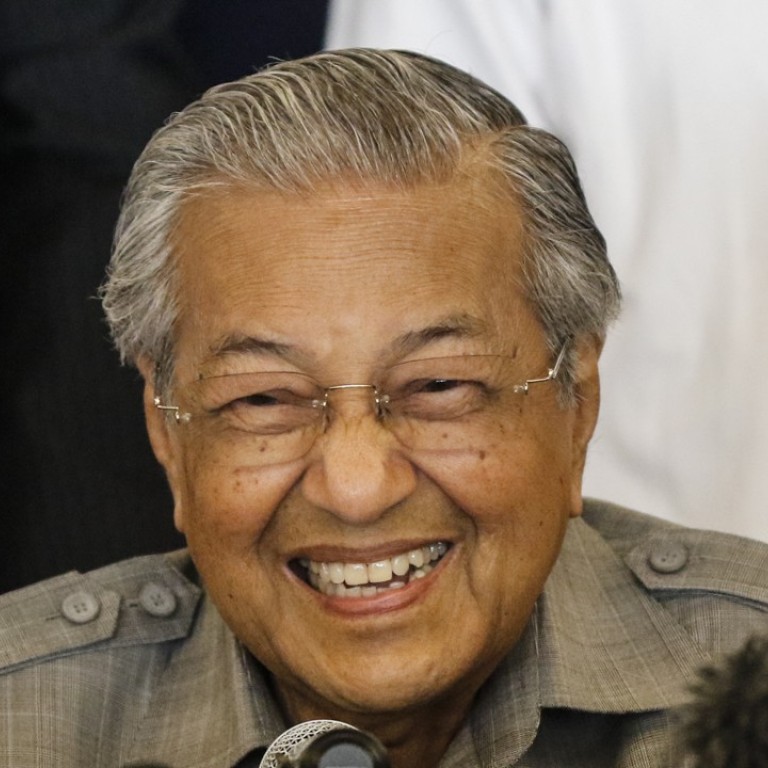
A bullish sign from Malaysia, of all places
Mahathir Mohamad’s return to power sends a message that the popular will can turn on privileged and entrenched state power
The last three months gave Southeast Asia little to celebrate. The MSCI Asean Index has suffered amid US-China trade-war threats, rising global bond yields and fears markets had peaked. Now comes a burst of stellar news –- from Malaysia, of all places.
For many, Mahathir Mohamad’s return to power might seem reason to run for cover. The idea that a 92-year-old populist firebrand who wreaked havoc during the 1997 Asian crisis is a “buy” signal might indeed sound absurd. As prime minister from 1981 to 2003, Mahathir railed against capitalism, demonised currency traders and Jews and neutered democratic institutions.
What’s more, his plans for Southeast Asia’s No 3 economy are unclear. Mahathir did, after all, help perfect the political machine that the vanquished Najib Razak bent to his will over these last nine years of scandal and complacency. During his initial premiership, Mahathir also championed race-based policies that benefit the ethnic Malay majority at the expense of productivity, innovation and competitiveness.
Yet on May 9, voters displayed a capacity for self-correction few thought Malaysia had. Anger over a multi-billion-dollar corruption scandal at a state fund Najib created ended the 61-year reign of his Barisan Nasional coalition. We can debate whether Mahathir is an ideal change agent. But there’s no denying that the forces of democracy won last week.
Najib’s spin and populist hand-outs proved no match for Mahathir pledges to right the wrongs of the past. Mahathir says he’ll champion pro-business policies. And the power of that message is sure to reverberate far beyond Malaysia’s borders at a pivotal moment, and in a good way.
The message to leaders whittling away at democratic norms from Cambodia to the Philippines to Thailand is this: the popular will can turn on privileged and entrenched state power. Cambodian Prime Minister Hun Sen might now think twice about deepening media curbs. The military junta ruling neighbouring Thailand might feel greater urgency to retool the economy, spread the benefits of growth and perhaps even schedule the election they’ve been promising for four years.
Philippine President Rodrigo Duterte might remember the will of voters -– that his popular mandate is battling corruption and economic inefficiency, not waging a war of choice against the drug trade. He might be reminded that his job is to create good-paying jobs at home, not facilitating the export of ever more Filipinos to work in Singapore, Hong Kong and Dubai to send money back home.
Najib’s downfall also has implications for China. Beijing’s embrace of Southeast Asia favours the authoritarian status quo. During the campaign, Mahathir accused Najib of “selling off” Malaysia to Beijing. Losing Najib, a reliable and predictable force in the region, may prod President Xi Jinping to recalibrate policies toward Malaysia and neighbours.
Indonesia’s Joko Widodo, meantime, will be heartened to see democratic forces overcoming efforts to manipulate the media and religious and ethnic sentiment in a key Muslim-majority neighbour. Widodo, after all, faces exactly these headwinds ahead of the 2019 national election.
Any impact from Malaysia that spills over into neighbouring economies could add momentum to raise economic games. Any steps to increase transparency, reduce governments’ role in the private sector, unshackle the media and lower trade defences would enliven growth, corporate innovation and profits.
To be sure, Mahathir is hardly an ideal change agent. But his victory is a timely wake-up call for a region that too often gives short shrift to the voice of the people. That may jolt leaders from Bangkok to Manila to care less about clinging to power and more about raising living standards. If Malaysia’s election intensifies the focus on the latter, Asia will have much to celebrate.
William Pesek is a Tokyo-based journalist and author. He has written for Bloomberg and Barron’s

